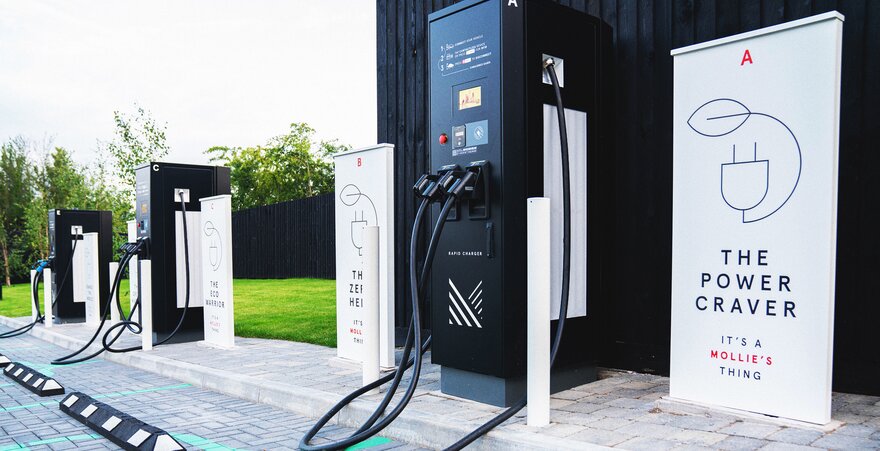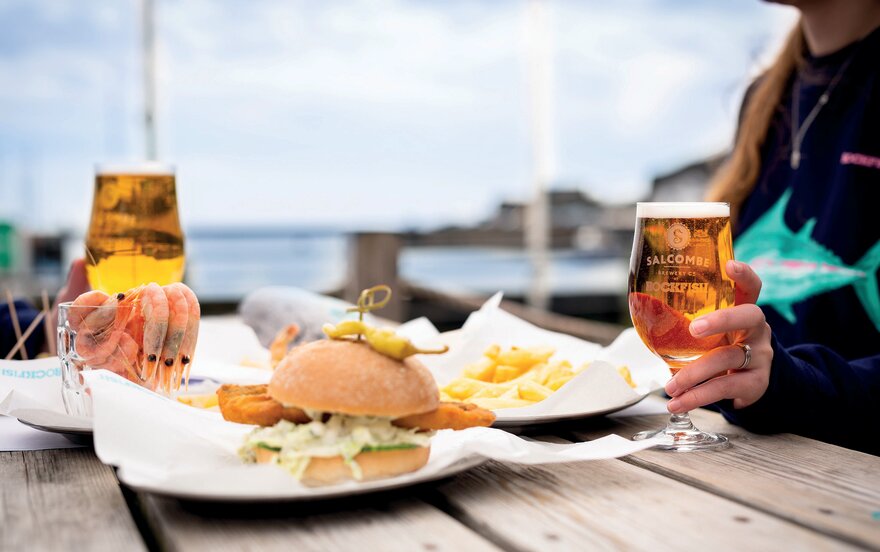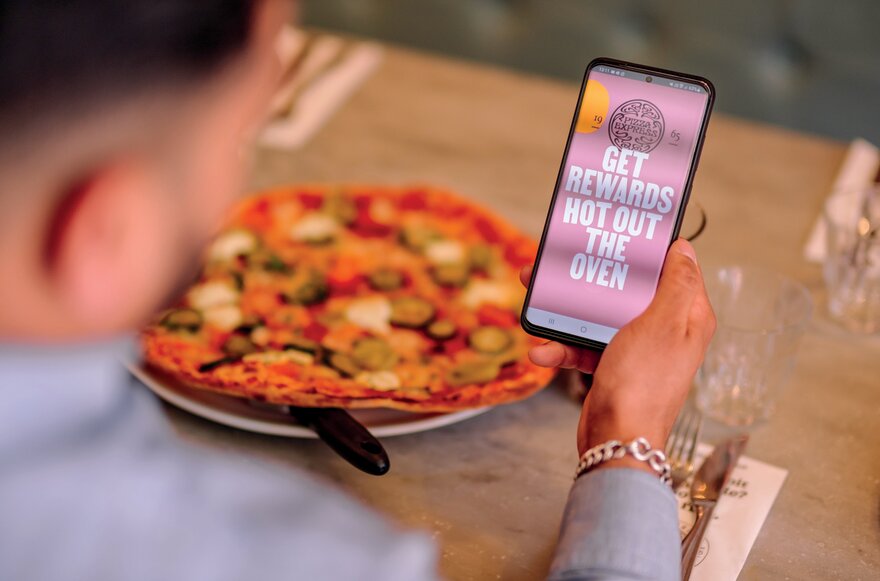Spotlight on: EPoS systems
Paying for a meal or hotel room online is now normalised, so electronic point of sale systems are going further than ever. Glynn Davis reports on the latest developments
Customers were forced to change the way they interacted with hospitality during Covid-19. This behavioural impact has continued into the post-pandemic environment, with technology playing an increasingly prominent role in ordering, payments and loyalty.
The likes of mobile ordering, pay at table, QR codes, digital loyalty programmes and apps have become mainstream features of the leisure and hospitality industry, with varying degrees of adoption.
What links these different customer touch-points is electronic point of sale (EPoS) systems, which have become increasingly important as the central hubs from which ordering and payments are connected, regardless of where they touch the customer. This has led to increasingly flexible EPoS solutions that are able to integrate with a vast array of third-party solutions that go beyond payments and ordering. These encompass booking tools, kitchen management, customer relationship management (CRM) software, event management, stock control, product ordering and menu planning.
A growing eco-system around the EPoS is proving to be a great generator of connected data, providing hospitality businesses with the opportunity to generate insights that can help them deliver a richer, more personalised experience to the customer.
Case study: Tevalis at Mollie's
Mollie's and its tech partners have developed the Mollie's Motel Diner App as the primary guest interface in a bid to simplify its systems and align them with the guest experience.
The app enables online check-in, a digital room key, 24-hour online chat and control of the 50-inch smart TVs in its rooms. It also allows guests to pre-book EV charging bays and cast Netflix or Spotify from their phone to the TV.
Sitting alongside the app and integrated fully within Mollie's overall technology eco-system is Tevalis, which provides an EPoS system consolidated with various solutions comprising bespoke kitchen management and Drive-Thru collection screens, online ordering, its TevX mobile handheld ordering system, and end-to-end stock management and business reporting. The tailored software and robust hardware infrastructure communicates seamlessly to optimise processes and increase efficiency across the whole business.
The Tevalis solution is also integrated with numerous partners, including SevenRooms for restaurant reservations and table availability, Preoday for pay-at-table services, and Deliverect for online orders. In-app gift cards and breakfast vouchers are provided by Toggle, property management and a central transactions engine with integrated accounting are supplied by Apaleo, while Hotelappz implements Mollie's CRM with the guest hub and marketing automation.
This guest-focused architecture, underpinned by the EPoS system, delivers on Mollie's initial objective to drive customer retention through an outstanding guest experience while automating operations as much as possible and optimising costs and labour. It has ultimately delivered a 40% reduction in operational costs, increased booking conversion rates by 120%, saved over five hours a week on customer service, driven a higher average spend per guest, and fuelled a 459% increase in app downloads.
Sponsored viewpoint: How mobile ordering is enabling hospitality operators to drive revenue and streamline resources
Graham Rushin, vice-president of sales and marketing at IRIS
Mobile ordering across the hospitality sector has firmly shifted gear from the ‘nice to have' to a proven solution that has seen unprecedented growth in both its adoption and development. Now a fully integrated feature of the hospitality operator's tech stack, when employed effectively, mobile ordering has proven to enhance the guest experience, drive revenue and reduce the pressure on staff. But how can it work harder?
Meet guest expectations
Online F&B ordering empowers guests to order what they want, when they want, to their preferred location and with a payment method that suits them. With an increase in deployment and usage, the last three years in particular have seen both hospitality operators and guests alike reaping the benefits of a more flexible and cost-effective approach to placing and processing orders. Guests have been quick to demand a more mobile, digital-first experience and operators have been swift to respond by implementing apps and software that provides the means to deliver a more autonomous guest journey and frictionless experience.
Boost ancillary revenue
It is this flexibility that enables operators to maximise F&B revenue opportunities and reach 100% of guests in a way that suits them. Guests peruse the menu, place their order and it can be seamlessly delivered to a location of their choice (room-service, poolside, coffee bar or spa for example). Guests can also open a tab, filter the menu, apply discounts, split the bill (for large groups) and pay online.
Lighten the load on staff
With staffing challenges still posing major issues for operators, mobile ordering can help alleviate and reduce the pressures on staff. By passing the transactional elements to guests and enabling them to order online, it has removed the manual process of handling orders by staff (over the phone or in person) and thereby reduced their workload.
Orders go straight to the kitchen to be processed, and customer wait times are often reduced as a consequence. Staff have more time to engage with guests and spend less time on administrative tasks, which adds value to both the guest experience and profit margins.
Whichever aspect of the F&B service offer operators choose to adopt mobile ordering for, consistency is key to delivering a solid ROI. Ensure QR codes are updated and readily displayed throughout the property and staff are fully briefed on how to encourage guests to use them. That way guests benefit from a more enhanced experience, staff benefit from having to fulfil fewer manual tasks and operators can benefit from additional revenue streams. A win win win.
To find out more please visit iris.net
Case study: Rockfish with Zonal
Post-pandemic customer service at Rockfish's seafood restaurants and online seafood markets requires multiple touchpoints and various devices that all hang off its EPoS system.
Across the group's outlets on the coasts of Devon and Dorset is a Zonal technology solution, implemented to deliver business efficiencies and an exemplary guest experience.
Mat Prowse, operations director and co-founder of Rockfish, says: "The technology we implemented needed to be something that is slick, works simply in the background and doesn't interfere with anything that we offer. Technology for any business in this day and age is a really important factor to consider. In restaurants especially, it's all about the guest experience."
The order and pay app has become an important part of the business, with consumers more open to this kind of technology that delivers efficient service during busy sales periods, ensuring an improved overall experience and boosting customer satisfaction. Meanwhile, for customers still wanting face-to-face service, Zonal's handheld ordering solution enables staff to avoid taking orders manually and having to re-key them in at a fixed terminal.
These various touchpoints are integrated within both the main EPoS and inventory management function, thereby ensuring staff are always up to date with availability of menu items. This is particularly important to Rockfish as its menus change daily dependent on the fish caught that morning. Since the EPoS feeds directly into the kitchen management system, there is no misunderstanding of orders, nor lost or damaged tickets.
Glenn Tait, product director at Zonal, says: "Being able to offer customers a seamless dining experience is vital to Rockfish and having fully integrated front of house and back of house technology is key."
The integrated nature of the EPoS system enables it to collect data from all parts of the business, with the resulting insights proving invaluable in shaping the business for the future.
"Having such detailed, real-time oversight of a number of areas within the business, including real-time stock levels, detailed sales reports and spot checks at the click of a button, enables the business to deliver efficiencies such as cutting wastage as well as helping identify trends and sales patterns to help fine-tune the offer and boost sales," says Tait.
Case study: Celtic Collection with FanGo
Events have become much easier to manage and also more profitable for the Celtic Collection since it implemented a dedicated event management software solution from FanGo.
Historically at the Celtic Manor Resort in Newport, events, especially at Christmas, were labour intensive. Ticket sales would arrive via phone or email, along with the subsequent chasing of deposits and final payments. Manual collection of food and drink pre-orders using paper forms was time-consuming and all this data needed to be inputted into numerous spreadsheets for sales and operational purposes.
Bringing in FanGo in 2019 enabled the streamlining of the entire booking and pre-ordering process, and simplified manual tasks such as table planning, tracking dietary requirements or allergens and revenue allocation. Everything from bookings to food and drink pre-orders, payments to automated reporting is taken care of, with reduced admin for both staff and guests, plus the bonus of becoming cashless.
Guests no longer need to spend time calling to book tickets or collating menu and drinks choices into spreadsheets, nor are they restricted to working hours but can instead book online anytime that suits them. The fact the system can take bookings 24/7 not only drives sales but also avoids missed sales opportunities.
In 2022, 20,000 guest accounts were created and more than 40,000 tickets were sold across the Celtic Collection, with over 80% of ticket sales and pre-orders made online via FanGo.
Louise Lewis, revenue manager at the Celtic Collection, says: "FanGo saves the Celtic Collection over 50 business days a year. In the second half of the year, it used to take two staff members around eight hours a week to collate and prepare reports for ticket sales, chase payments and track guest meal choices and allergen and dietary information.
"For the Celtic Collection events team it was no longer necessary for them to recruit, train and employ Christmas co-ordinator staff."
Following the success of the initial launch, the Celtic Collection now uses the FanGo system to manage its other major events, from tribute nights to afternoon teas
Case study: Chopstix with Access
Fast-growing quick service restaurant brand Chopstix selected Access EPoS to ensure its technology keeps pace with its ambitious expansion plans. During this growth phase, the company will benefit from a centralised system enabling future acquisitions to be added as easily as possible.
With more than 90 restaurants across the UK and Ireland, a further 10 under its sister brand Yangtze, and a programme of site openings in shopping centres around the country, Chopstix had found its former system lacking.
Issues with the likes of reporting, monitoring the cost of sales from its menu and accurately measuring levels of wastage led the company to bring in an EPoS solution from Access.
Chopstix head of finance James Cowan says: "We knew that a lot of big businesses already used Access EPoS, so were confident it would provide the scalability we needed as the business expanded. We needed the reassurance that we could switch on a new site and it would be up and running on the system as soon as it went live with minimal manual input."
The company also wanted to get as much as possible out of the data it collects. "We recognised that scaling up the level of reporting and potentially developing a stock system would improve visibility and efficiency as we expanded further," explains Cowan."
"Having the capability of adding other modules that are all powered by Access Workspace in one place is, therefore, a huge advantage in providing simple but effective reports across all operational areas of our business."
Case study: PizzaExpress Club app
As part of its digital transformation, PizzaExpress has developed the casual dining industry's first multi-channel loyalty app, combining the restaurant experience and supermarket retail products as well as takeaway and collection options into a centralised hub.
The app offers guests a simplified restaurant dining experience. Diners can book a table and browse the menu on the go and, through the check-in feature, can pay via the app with the option to split the bill. This feature is proving popular, allowing groups to avoid complicated conversations and calculations when paying. The company has seen 49% of bills paid using the app, which is also seamlessly integrated with Apple Pay, PayPal and Google Pay.
Following its launch in December 2021, the app has attracted more than 1.5 million customers and is continuing to grow. It accounts for a significant proportion of the group's weekly sales, as customers visit frequently to benefit from the exclusive rewards. Arslan Sharif, digital and loyalty director at PizzaExpress, says: "The app provides the opportunity for members to engage and save with our loyalty scheme, whether they are dining in, taking away, or shopping in their local supermarket. Our check-in function means that diners can engage with the loyalty scheme in a dine-in setting without having to order at the tills."
Actions such as booking a restaurant table, scanning QR codes on supermarket pizzas and delivery orders, ordering via the app for collection or delivery or simply referring friends can help members earn rewards and savings.
Customers are rewarded with free menu items when they dine, exclusive personalised offers, tailored communications, and have visibility of their rewards and how much they have saved by being a member of the club.
"It has been fantastic to see our customers embrace our app and we continue to develop it and further expand our digital offering to provide the best experience possible for our guests," says Sharif.









